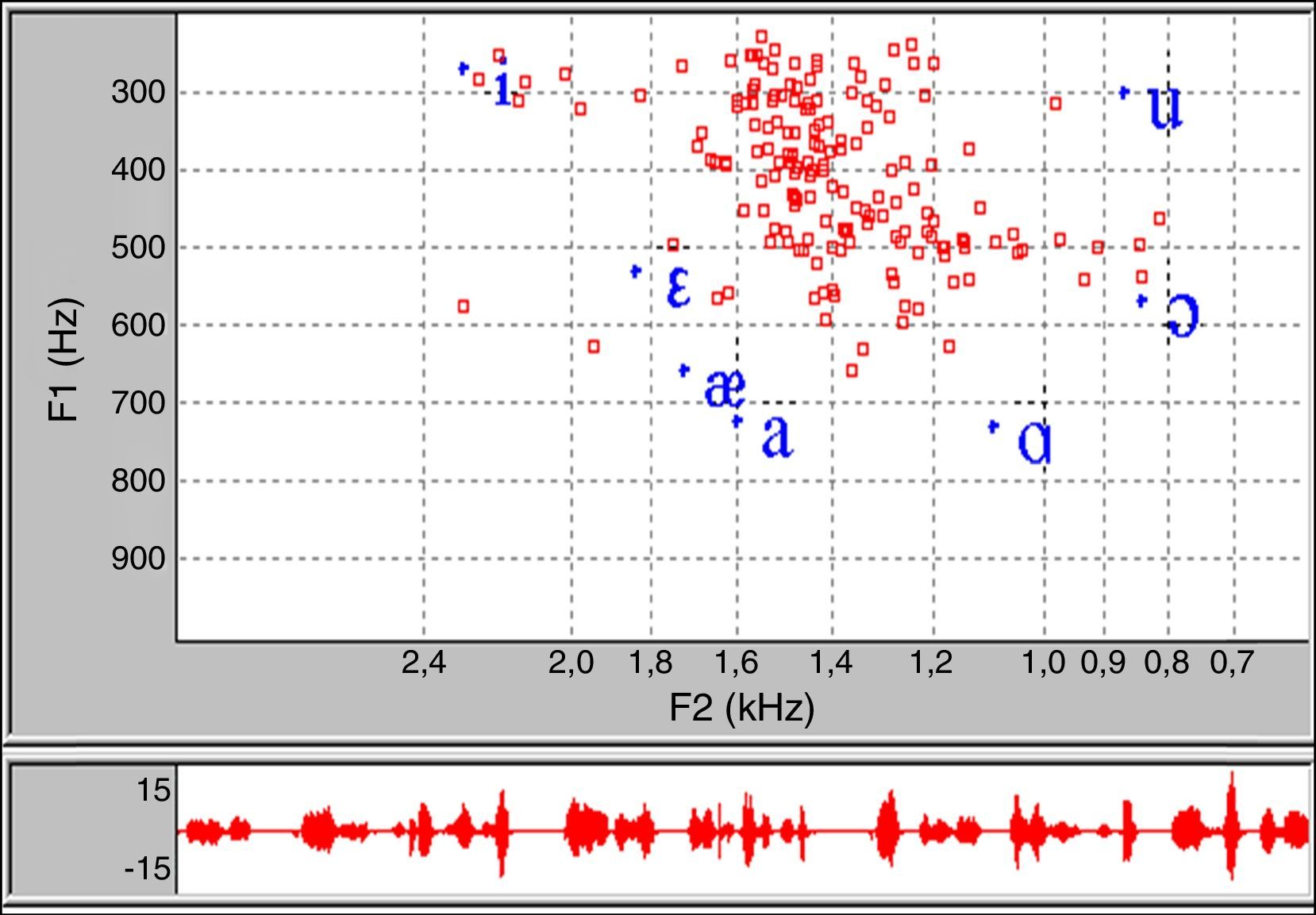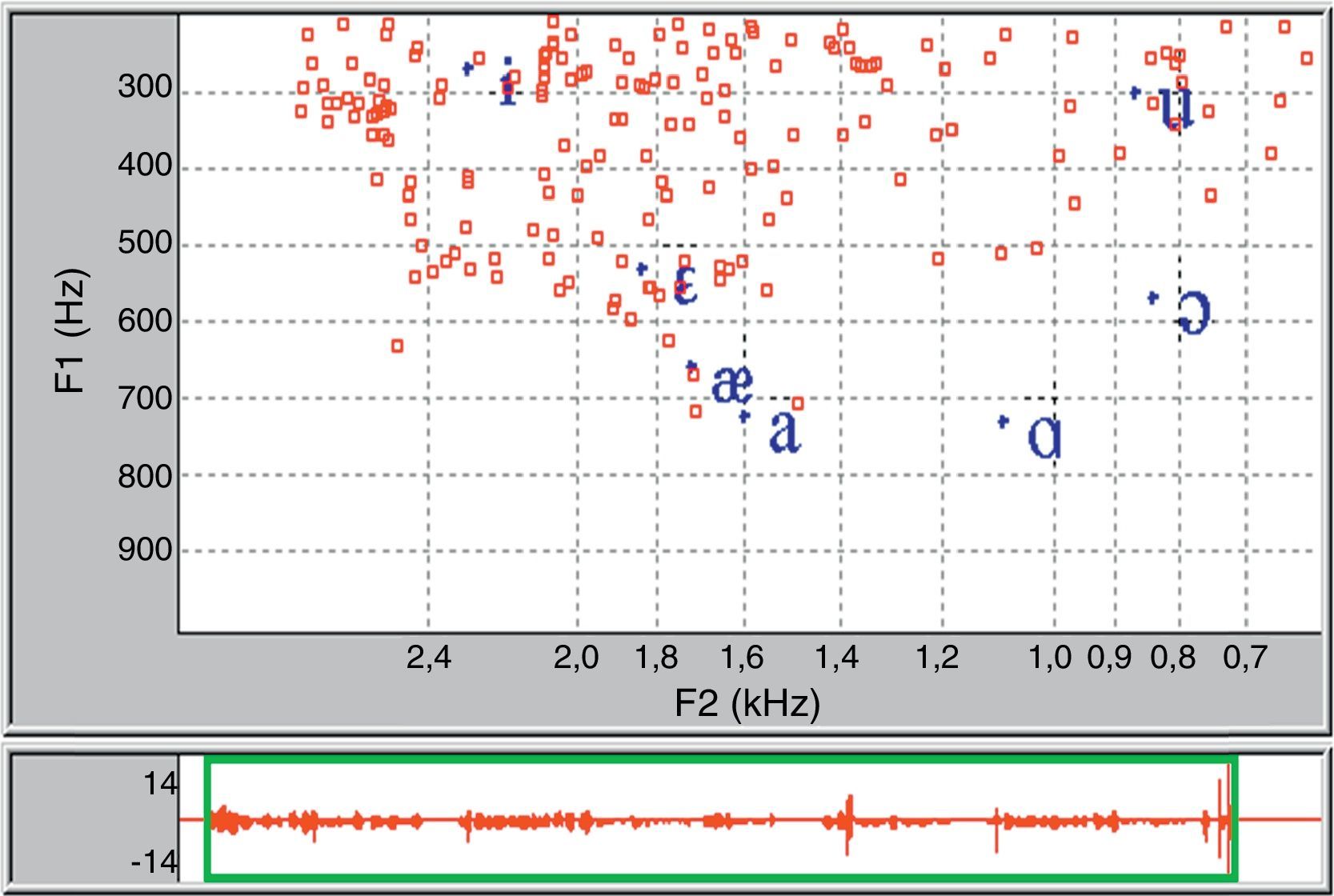La cirugía oncológica en lesiones extensas de carcinoma lingual obliga a realizar resecciones amplias que precisan reconstrucción con colgajo libre periférico. Los colgajos libres permiten un aspecto físico más semejante al normal, pero debido a la especialización de la lengua, no es fácil restituir su funcionalidad. Ello compromete la dinámica deglutoria en la fase oral y de transporte, además de la comunicación hablada. La terapia logopédica convencional precisa una media de 3-12meses. Presentamos el caso clínico de un varón de 64años con carcinoma epidermoide lingual estadio IVA (T4aN0M0) al que se le practicó glosectomía total con mandibulectomía marginal sinfisaria, reconstrucción con colgajo fasciocutáneo libre perforante anterolateral del muslo y vaciamiento ganglionar funcional bilateral. Precisó traqueostomía y sonda nasogástrica para alimentación. Valoramos al octavo día posquirúrgico e iniciamos rehabilitación por disfagia orofaríngea mecánica y disglosia precozmente a pie de cama. Los objetivos fueron: favorecer el sello labial, tragar saliva, manejo de secreciones, decanulación, coordinación neumofónica, inteligibilidad, deglución segura y eficaz, prevenir complicaciones y mejorar la calidad de vida. El paciente era capaz de comunicarse con su entorno directo en la sesión quinta y realizar una ingesta oral con dieta blanda y líquidos espesados en la octava sesión, siendo retirada la sonda nasogástrica y derivado a domicilio el día 20 del postoperatorio. Se concluye que la rehabilitación precoz e individualizada dentro de un equipo multidisciplinar es indispensable para restituir la deglución y el habla, mejorando la calidad de vida del paciente. Además, esta modalidad de actuación reduce los costes sociosanitarios.
Oncological surgery in extensive lingual carcinoma lesions requires wide resection and reconstruction with a peripheral free flap. Free flaps can provide a fairly normal physical appearance but, due to the specialization of the tongue, it is not easy to restore its functionality. This compromises the dynamics of swallowing in the oral and transport phase and spoken communication. Conventional speech-language therapy requires an average of 3-12months. We present the case of a 64-year-old man with lingual epidermoid carcinoma stage IVA (T4aN0M0) who underwent total glossectomy with marginal mandibulectomy of the symphysis, reconstruction with an anterolateral thigh fasciocutaneous free flap, and bilateral functional lymphadenectomy. The patient required tracheostomy and a nasogastric catheter for feeding. We evaluated the patient on the eighth postsurgical day and initiated rehabilitation of mechanical oropharyngeal dysphagia and dysglossia at the bedside. The objectives were to encourage labial seal, swallowing of saliva, handling of secretions, decannulation, breathing and speaking coordination, speech intelligibility, and safe and effective swallowing and to prevent complications and improve quality of life. The patient was able to communicate with his direct surrounding in the fifth session and was able to make an oral ingestion with a soft diet and thickened liquids in the eighth session. The nasogastric catheter was removed and the patient was sent home on the 20th postoperative day. We conclude that early and individualized speech-language therapy within a multidisciplinary team is indispensable to restore swallowing and speech, improving the patient's quality of life. In addition, this kind of intervention reduces social and healthcare costs.















